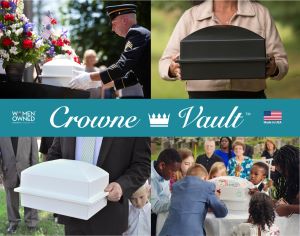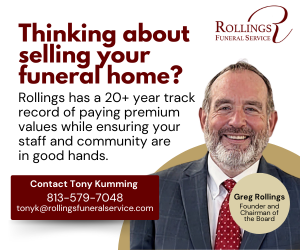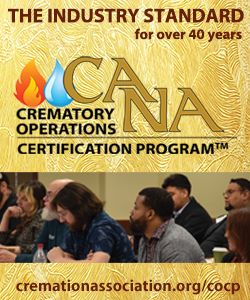Airlines, cemeteries dealing with “Wide-bodies”

Just last week according to this article from Newsweek “Southwest Airlines announced that it was ending a policy that allowed plus-size travelers to book an extra seat without extra costs. Under the new rules, passengers must buy two seats if they cannot fit on one, but refunds may be considered if the flight does not sell out.”
With that decision, according to the same article, Southwest joins United Airlines, Spirit Airlines, and Frontier Airlines as airlines that require a second seat be bought in these circumstances.
We also learned last week from this article from the British Broadcasting Corporation (BBC) that airlines are not the only industry wrestling with the sales requirements to wide-bodied people. The article tells of Danescourt Cemetery in Tettenhall, City of Wolverhamption where the council had announced a 20% surcharge on the sale of six-foot wide cemetery lots as opposed to the standard five-foot wide lots.
According to my exchange rate math, the six-foot wide rate would be (in U.S. dollars) US $ 3,650 per lot as compared to a normal five-foot lot rate of about US $ 2,920.
According to the article the city defended the move “saying that it was responding to an increase in demand for larger graves, with obesity rates of 33.3% in the city compared with a national average of 25.9%.” The city also commented that “Local authorities in Telford, Birmingham, Walsall, Coventry and Staffordshire have already implemented charges for wider coffins.”
The Wolverhampton City Council has already opened a dedicated section for six-foot wide burial plots at the cemetery.
Mr. Ross Hickton, described as a funeral director with Hickton Family Funeral Directors, an independent company with seven branches across the West Midlands spoke against the idea. According to the article, Mr. Hickton is quoted as saying, “Essentially it’s a fat tax. You know people have paid into the system their entire life, paid their council tax to Wolverhampton Council, and for them to be told 20% more because of the size of their loved one, it’s not really acceptable or fair.”
Matthew Crawley, Chief Executive at the Institute for Cemetery and Crematorium Management stated, “You have a finite amount of space to work with; therefore if you need to eat into a grave next door, say, then that needs to be accounted for. You also have to account for the idea that digging the grave itself will also need extra equipment to keep it safe.”
Following this discussion, the council made the decision not to proceed with the (extra charge) plans. It was noted, however, that extra charges for larger plots was “(a) common practice taken by councils around the country where higher charges cover the costs of providing a larger plot”.
A little more information on the subject— The National Society of Allied and Independent Funeral Directors surveyed its members to ask if their local councils charged more for wider plots. They received 165 replies with 25% answering in the affirmative.
The BBC contacted 27 local authorities in the West Midlands and just over a third said they charged more for wider burial plots.
Related — Another article on this decision from The Guardian. “Wolverhamton Council rethinks plan to introduce premiums on wider graves”. (Great Britain)
Related — Another article on this decision from The Independent. “Council slammed for charging ‘fat tax’ on burials of larger coffins.”

Tom Anderson
Funeral Director Daily
Funeral Director Daily take — I see both sides of this issue. Anecdotally, I always felt nervous when I had to tell a family that an “oversize” or “larger than average” casket might be needed for their loved one. It was a part of funeral arrangements that had to be done and it was never comfortable to do so.
I will also tell you that when I first started working in the profession in 1980 we had about one in every seventy-five casketed deaths that required an “oversize” casket. By the time I retired that ratio went to about one in twenty. . . so, on average, people who died were larger.
There are lots of theories on why this is so and I use judgement very judiciously so I don’t even want to venture an opinion. In some cases it may be out of a person’s own actions or ability to be smaller. It’s difficult for me to pass judgement on that individual.
It reminds me that we all live with different situations. As for me, I’m simply grateful for my situation. I have a devotional quiet time every single day and I have a lot to be thankful for. During that time I always make a point to thank the Lord that at 67 years of age he allows me to be able to run a couple of miles daily and also gives me the health to play golf. I’m so very grateful to Him for that ability — even if I’m a slow runner and a poor golfer!!
Trying to be accommodating to people of all situations is part of our duty as funeral directors. The large human-being requiring an “oversize casket” or larger grave is one of those instances. However like airlines, funeral homes and cemeteries should be allowed to recoup the extra costs of that accommodation as well.
I’m guessing that oversize seats, caskets, and cemetery lots will continue to be a tricky and touchy subject.
By the Way — I don’t like the term “oversize” or “plus size”. However, I had a difficult time coming up with the right term. Take a look at the, at least in my opinion, awful synonyms for “oversize casket” that the thesaurus gave me. You can see their suggestions here.
More news from the world of Death Care:
- Undertaken: The next generation of funeral directors. Podcast and print article. WUNC — North Carolina Public Radio (NC)
- Owner of funeral home dodges questions from Fox5 after permit is revoked. Video news story and print article. Fox5 Las Vegas (NV) and 13 News Tucson (AZ)
Enter your e-mail below to join the 3,199 others who receive Funeral Director Daily articles daily
“A servant’s attitude guided by Christ leads to a significant life”




















